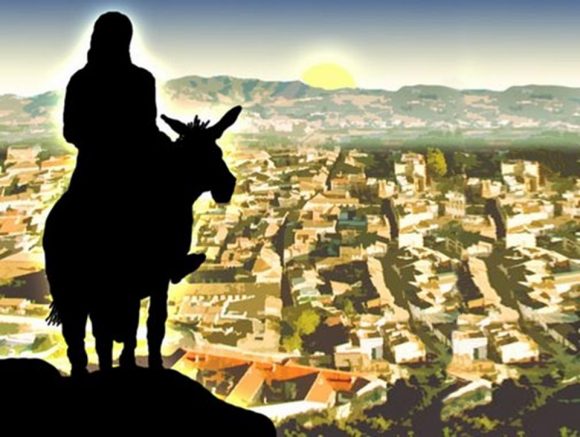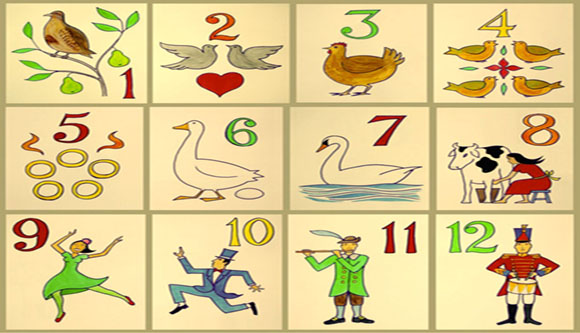On the Sunday before Christmas, I preached a sermon in which I talked about my childhood experience of Christmas as a Moravian here in Winston-Salem. I know that preaching is “the communication of truth through personality,” but I feared that sermon was a step too-far.
Interestingly, you responded to it with enthusiasm. Not so much because I talked about my experience, but because I talked about experiences that were common to many of us.
Just this week, as I was planning my sermon for Mother’s Day, a man I respect said to me, “Worth, don’t talk too much about Synod this week, talk about your mother.”
Those were his exact words. He did not say, “Talk about our mothers.” He said, “Talk about your mother.” I expect he said that, thinking that all of us have mothers, and every story of a mother and her child is both very specific, and well nigh universal. When I mention how my mother loved me, and fed me, and cared for me, and taught me, and disciplined me, and picked me up when I fell down, you nod your heads and say, “Amen!”, because your mother loved you, and fed you, and cared for you, and taught you, and disciplined you, and picked you up when you fell down.
Therefore, I am going to talk about my mother, in hopes it will enable you to think about your own.
My first memory of my mother is that of an invalid. My mother gave birth to me when she was living with my father in Bethlehem, Pennsylvania, where dad was a student at Moravian Theological Seminary. In case you are wondering, I was born in Bethlehem, lived there for three weeks where I picked-up my accent, and moved back to North Carolina. My dad stayed in Bethlehem, but my mother came home, because the physical shock of my birth was too much for her. Back in Winston-Salem, my mother was in bed for almost a year, and my grandmother took care of her, and also took care of me.
I am proud of my grandmother, Stout, “Granny.” She had a hard life—but a good one. She came to North Carolina from South Carolina after her father’s death. That is a story in itself. My Great-Grandfather Henderson was a chicken farmer and a conductor on the rail road. The train ran by his farm, and would stop there to pick him up. One day, after he left, a road-gang arrived. That night, a member of that gang came over to my great-grandmother’s house and tried to break down the door. My Grandmother Stout, just a little girl at the time, told me that she was clutching her mother’s legs in fear, when Great-Grandmother Henderson pointed a large “horse pistol,” at the door and told the man if he did not leave she would shoot. He did not leave, and continued to beat on the door—with renewed effort, so, terrified for her life and the life of her child, she shot through the door. My Grandmother Stout told me that the next morning they found the man dead in the pea-vines that grew along the front porch. I am not celebrating this violence, for it escalated, as violence often does. It was not long after that my Great-Grandfather Henderson was killed, perhaps in reprisal, and his body thrown from the train.
The two women, mother and daughter, then moved to North Carolina where my Grandmother Stout managed to stay in school through the fourth grade before she took work to help support herself and her mother. At the age of 17, she married my grandfather, E.L. “Pop” Stout, already 30 years old, who had a produce business. Pop hauled fruit and vegetables from Florida to Winston-Salem, and he also had business interest in California. He was often away. That left Granny Stout to raise their 6 children on her own. My mother was the oldest. She was born when My grandmother was still 17, and she was 17 when her youngest sister was born. My Granny Stout did a pretty good job with her children. My mother was valedictorian of her high school class, as was her next oldest sister, my Aunt Lee. My Uncle Boyd had a distinguished career in the U.S. Air Force, serving in two wars; and my Uncle Archie was the first man to win two $5,000 innovation awards at the now defunct Western Electric Plant on Old Lexington Road. My Aunt Ella Mae was smart, sweet and strong. It was she who gave me the baby doll for Christmas, in hopes of making me kinder and gentler, perhaps. And my Aunt Anoree looked like a movie star was one of the best athletes of either sex I have ever known. If you think I am proud of my family, you are right. But I am prouder still of the woman with the 4th grade education that raised them.
Anyway, my Granny Stout took care of my mother, and she took care of me. My earliest memories are not of my mother, but of my grandmother. I can still remember waking up in her bed, and scrunching over next to her to stay warm under a stack of quilts. The house on Cotton Street where we lived did not have central heat, and it was cold in the winter and hot in the summer. Don’t for a minute think we were the unwashed poor. We did not have a bathtub or hot water, but I got a bath every Saturday night whether I need it or not. I took it in a galvanized tub in the kitchen with water heated on a wood stove. Between those big baths my mother gave me “bird baths” in the sink, and bird baths are always better than spit baths (let the reader understand). Likewise, we had an indoor toilet, which was installed on the closed-in back porch; and later, long after mother and I move out, my granny got a hot water heater and a shower installed, too.
I remember my mother best when Dad graduated from Seminary and we moved to Enterprise Moravian Church. Enterprise was in the country then. I remember my mother letting me wonder in the woods and play in the mud behind the house, though she did caution me to look out for snakes. She had concerns because the house was built on a snake hill. I will never forget the day I went into the basement to see my Cocker Spaniel going one on one against a mama copperhead while her babies crawled all around them. he snake would strike, and my dog would dodge the strike. It happened over and over until finally, the snake struck, and my dog, apply named Butcher Boy, caught her behind the head and chewed until her head fell off. I went upstairs and got my mother and she came downstairs and killed all the baby copperheads by cutting their heads off with a garden hoe.
In the Bible a snake is the symbol of evil. One passage in Amos talks about how a man can outrun lion, and then run into a bear, or lean a hand upon a wall and be bitten by a serpent. Snakes can sneak up on you, and so can evil. My mother always tried to protect me from evil. However, every mother eventually realizes that she cannot protect her children forever. It is the nature of children to wander outside a mother’s sight and control. Early on, my mother turned to prayer to protect me. We started every day with prayer at the breakfast table. And we finished with prayer every night. Until I was 8 or 9 my mother would kneel by my bed and listen as I prayed:
Now I lay me down to sleep,
I pray the Lord my soul to keep;
If I should die before I wake;
I pray the Lord my soul to take.
Like many of you who also learned that prayer, after she left, I would lay awake thinking that I was not yet ready for God to take my soul. I had too much life left to live. I also thought about how I did not want to God to take my my mother’s soul either, and that was far more likely for she was well past thirty, and older than dirt.
Even then I could not imagine anything worse than for a mother to loose a child (especially me), except perhaps for a child (especially me) to loose a mother.
Mary the Mother of Jesus knew what it was to loose a child. Her brave suffering has been a comfort to mothers of every generation. In my study, I have a small soap-stone statue of Michelangelo’s sculpture of Mary holding the broken body of Jesus. This small copy of the Pieta was given to me by a mother who lost her son—not to death, but to a disagreement. She sent him away because she considered him immoral. She was so afraid of God and God’s punishment, that she no longer felt comfortable loving her own child. She gave me the statue because I told her it was all right to love him, even if she could not understand his behavior.
The other side of this equation is when a child looses a mother. Nothing tugs on the heart like watching a young child who has lost a mother, except, perhaps, watching the child’s father try to do double duty as father and mother. We always hope and pray that God has a special consolation for such folk and, thankfully, he often does. The consolation sometimes comes in the form of a loving step-mother, who steps into a vacancy left by the loss of a mother to help a father raise a child or children she chooses when she chooses him.
Finally, I would recall for you how traumatic it is for anyone to loose a beloved mother, regardless of age. In one of his many books, Father Richard Rohr says that when we loose a beloved mother to death, it is like God has died, for our mother is our first God image and our divine security. I can add to that. When our mother’s are no longer themselves, such as those who have dementia and Alzheimers, and we cannot communicate with them as we once did, we sometimes feel as if God no longer knows us or hears our prayers as he once did. My mother is in memory care. Often, not always—but often, she acts normally toward some people, like my wife. Most of the time she is anything but normal with me. Most of the time she thinks I am my father, and everyday when I leaver she accuses me of leaving her forever, and plotting a divorce. She has often used that language. So, too, when I am with her, she makes me uncomfortable because she tells me things about her relationship with my father that I do not want to know. TMI! Too Much Information! How do I deal with this? First, I tell myself, I must now love my mother as she once loved me, not expecting much in return, as she loved me when I was a tiny helpless infant. Even though she sometimes does not know me, I always know her, and understand my continuing debt of love to her. Second, I tell myself that despite my mothers inability to recognize me and understand me, God knows me and hears my prayers as he always has. I like to think that God says to me what he once said to Israel,“Fear not, for I have redeemed you; and I have called you by name, you are mine.”
I remember a lot about my mother! I remember the time, at my cousin Robert’s birthday party when she showed unusual creativity. We were in the dining room in Granny’s house on Cotton Street. It was early November, and already dark out, and as we gathered around the table to cut the cake, I saw a face in the window. It was the face of a notorious neighborhood peeping Tom. I looked at my mother with wide-eyes. She put a finger to her lips to caution me against speaking or calling attention to myself, and slipped out of the room. She returned with a blank cartridge starter’s pistol my dad had left her for protection. Perhaps he knew from experience that it was never good to put a real gun into the hands of a woman in my mother ’s family. Anyway, mom came back into the room, and slipped around the wall like Dirty Harry. Then she jumped into the Peeping Tom’s face and pulled the trigger of that blank cartridge pistol. It went off with a BANG, and he fell over backward. He was soon on his feet and running away. My mother took off after him. Just as she cleared the front door she yelled, “I missed him, but I will get him next time.”
I have many more memories. I remember my mother working at the Downtown Garage, allowing me to belong to an early generation of latch key kids. I have memories of my mother writing a song for our 1966 Parkland High School Football team. She set it to the tune of ghost-ridders in the sky. And I remember how she let me have a 1947 Chevy Fleetline for a graduation present, even though it cost $60 dollars, and she and dad had already spent almost as much as on a Bulova Self-Winding watch. And I remember how, when I went off to college, mom let me take the car that we were supposed to share. And I remember how, on the day I got married, she met me on the steps of the church with her little box camera, and took a picture of me before I went into the church to tie the knot. Elayne has always loved my mother like her own, and mother has always loved her right back. Elayne has always said that my mother loves her more than she love me, because she has taken better care of her. The only evidence I can find contrary to Elayne’s opinion is that picture from the steps of the church, which still stands on mom’s dresser.
And I remember how when I was at sea with Battalion Landing Team 3/6, my mother wrote me to tell me that when I got back to North Carolina she and dad would not be there. And I remember visiting with them in Indiana where she gave me a bible to carry with me to my temporary duty station in California. And I remember how it was an encounter with the Risen Christ inspired by that very Bible that caused me to decide to become a disciple of Jesus Christ for myself. Mom and Dad had presented me in baptism when I was just a child, and they had sent me to confirmation, but my mother lived for the day that I would own the faith for myself. Of course, mom was thrilled when I declared for the ministry. She said she always expected that I would go in the ministry, and she told me that, when I was just a little boy, she had come into my room one night, and heard a choir of angels. I have no doubt she thought it was a miracle. I did not have the heart to tell her, but it was more than likely Smokey Robinson and the Miracles, because when the atmospheric conditions were right, my old record player would sometimes pick-up WTOB even after the records had quit playing.
The hardest thing any of us ever have to do is go beyond the convictions of parents who loved us before we were born, and gave us life, and watched over us, and taught us all that they could. Yet, that is precisely what every generation must do. If humankind had never advanced beyond our first parents, we would still be dressed in skins, and living short lives in small, hunter gather communities. Karl Barth said that when we see beyond our parents, and make decisions for ourselves, whether religious, or political, or practical, we are like midgets standing on the shoulders of giants. We do not see father down the road than they see because we are more able, but because they have lifted us up so that we can see further than they.
In handing out the paper I have crafted this morning—which is available here, I have the hope you will read it carefully, not once, but several times over. I am not proposing anything new. You will not read in it anything I have not said many times from this pulpit and in private conversations. That said, I know that I am asking you to see things that former generations, even the generation of our parents, may not have not seen. Some decisions are not theirs but ours. Of course, God continues to cares for them and us, parent and child, and so on through out the generations. The devout orthodox Christian Kahlil Gibran wrote a poem that describes this perfectly entitled, “On Children.” It goes like this:
Your children are not your children.
They are the sons and daughters of Life’s longing for itself.
They come through you but not from you,
And though they are with you yet they belong not to you.
You may give them your love but not your thoughts,
For they have their own thoughts.
You may house their bodies but not their souls,
For their souls dwell in the house of tomorrow,
which you cannot visit, not even in your dreams.
You may strive to be like them,
but seek not to make them like you.
For life goes not backward nor tarries with yesterday.
You are the bows from which your children
as living arrows are sent forth.
The archer sees the mark upon the path of the infinite,
and He bends you with His might
that His arrows may go swift and far.
Let your bending in the archer’s hand be for gladness;
For even as He loves the arrow that flies,
so He loves also the bow that is stable.
Finis
Worth Green, Th.M., D.Min












